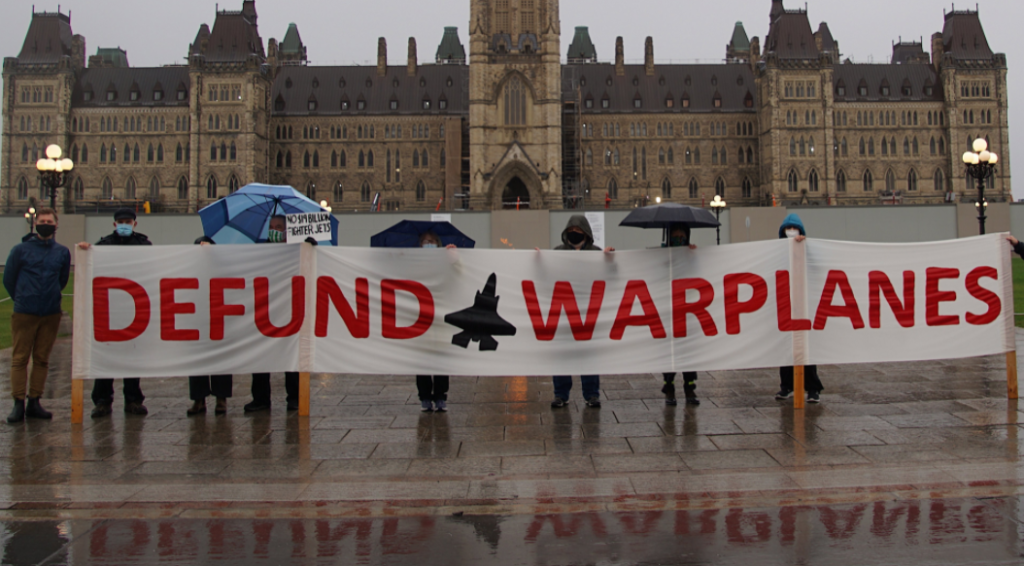On Monday, the Government of Canada announced it would be entering final negotiations with Lockheed Martin to buy 88 of its F-35 stealth fighter jets.
The Government of Canada media release noted that the procurement process involving two other fighter jets “evaluated these aircraft against typical scenarios familiar to NATO and NORAD allies.”
The CBC has also previously reported that one scenario in the request for proposals in Canada’s fighter jet procurement process “involves Canada’s future fighter jets evading Russian-style air defences to bomb an airport.”
This month, Germany also chose to purchase the F-35.
Rafael Loss, a security expert at the think tank European Council on Foreign Relations, says: “If you have to deliver the nuclear bomb, you better do it with a stealth aircraft than with an aircraft that doesn’t have that capability.”
Despite the questions this might prompt, Parliamentary opposition to this fighter jet purchase will likely be minimal.
The Conservatives, who as government chose the F-35 in 2010, will likely focus on the long-delay in purchasing the aircraft.
,They lamented Monday: “The Liberals announced they will be starting discussions to potentially award a contract at the end of 2022 to Lockheed Martin Corp. for F-35 fighter jets if negotiations go well.”
Their view is that: “This announcement is a far cry from the commitment and clarity Canadians expect from their federal government.”
The NDP has seemingly opted to focus on Arctic defence and job creation. NDP defence critic Lindsay Mathyssen commented: “We also said that any procurement must provide much-needed jobs in the Canadian aerospace industry in cities like Montreal and Winnipeg.”
It’s likely subsequent debate on the F-35 will focus on contract negotiations and maybe environmental impacts or spending priorities, but not on this rather blunt question: How many people will Canada’s new fighter jet kill?
This despite the Liberal Party platform in 2015 pointing to this issue.
At that time, they stated: “We will not buy the F-35 stealth fighter-bomber. The primary mission of our fighter aircraft should remain the defence of North America, not stealth first-strike capability.”
Lockheed Martin itself has also highlighted the F-35’s offensive capabilities: “With stealth designed in from day one, the F-35 has an unmatched ability to evade enemy detection and enter contested airspace.”
Canada’s current fleet of CF-18 fighter jets conducted approximately 1,598 bombing missions over the past 30 years.
Piecing together various mainstream media news reports suggest they conducted 56 bombing missions over Iraq in 1991, 558 over Serbia in 1999, 733 over Libya in 2011, 246 over Iraq in 2014, and 5 over Syria in 2015.
And yet military estimates about how many people were killed in these bombing missions has never been disclosed.
In November 2015, The Globe and Mail reported that a CF-18 air strike that month over northern Iraq killed between 5 and 13 civilians and injured more than a dozen others.
And in May 2017, the CBC reported that CF-18s missed their targets 17 times during bombing missions over Iraq.
Notably, that latter article highlighted: “The air force said it has ‘no information’ that any of its airstrikes, on-target or otherwise, killed or wounded civilians.”
No information?
While terrible to contemplate, it seems to be a fundamental question to ask “how many people will be killed” based on past experience when Canada is planning to spend at least $19 billion on purchasing the F-35 and almost $60 billion more on operating them over the next 30 years.
Who in Parliament will ask the question?




